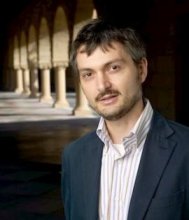The sharing economy is a growing force in today’s economy. Uber, Lyft and Airbnb are all examples of sharing economy companies. Often, the transactions occurring in these platforms are thought of as more risky than similar transactions occurring in regular markets. Interpersonal trust is thus necessary to overcome the greater perceived risk. Paolo Parigi has studied the relationship between risk and trust in the sharing economy for several years. In 2013, Paolo received funding from the National Science Foundation to lead research in this area. With an interdisciplinary team of social scientists and computer scientists, Paolo has developed novel methodological approaches to harness the power of online data and has explored innovative ways for collaborating between academia and industry. His research shows that reviews contribute significantly to overcome social distance between strangers of different backgrounds. At the same time, too many reviews appear to produce a ceiling effect after which trust between strangers stops growing. These findings may be applicable outside of the sharing economy to the other areas in which technology is penetrating and reshaping human interactions.
Trust and the Sharing Economy
Paolo Parigi, Associate Director of Computational Social Science at IRiSS and Lead Trust Scientist at Uber, has studied the relationship between risk and trust in the sharing economy for several years. In 2013, Paolo received funding from the National Science Foundation to lead research in this area. With an interdisciplinary team of social scientists and computer scientists, Paolo has developed novel methodological approaches to harness the power of online data and has explored innovative ways for collaborating between academia and industry. In partnership with Airbnb and other sharing economy companies, Paolo and his team explored the multifaceted nature of the relationship between risk, trust, and reputation. Paolo’s more theoretical work has touched on the impact of technology on relationships.
Paolo has an MA in Quantitative Methods and a PhD in Sociology from Columbia University. Prior to his current positions, Paolo had an appointment in the Sociology department at Stanford as an assistant professor.



